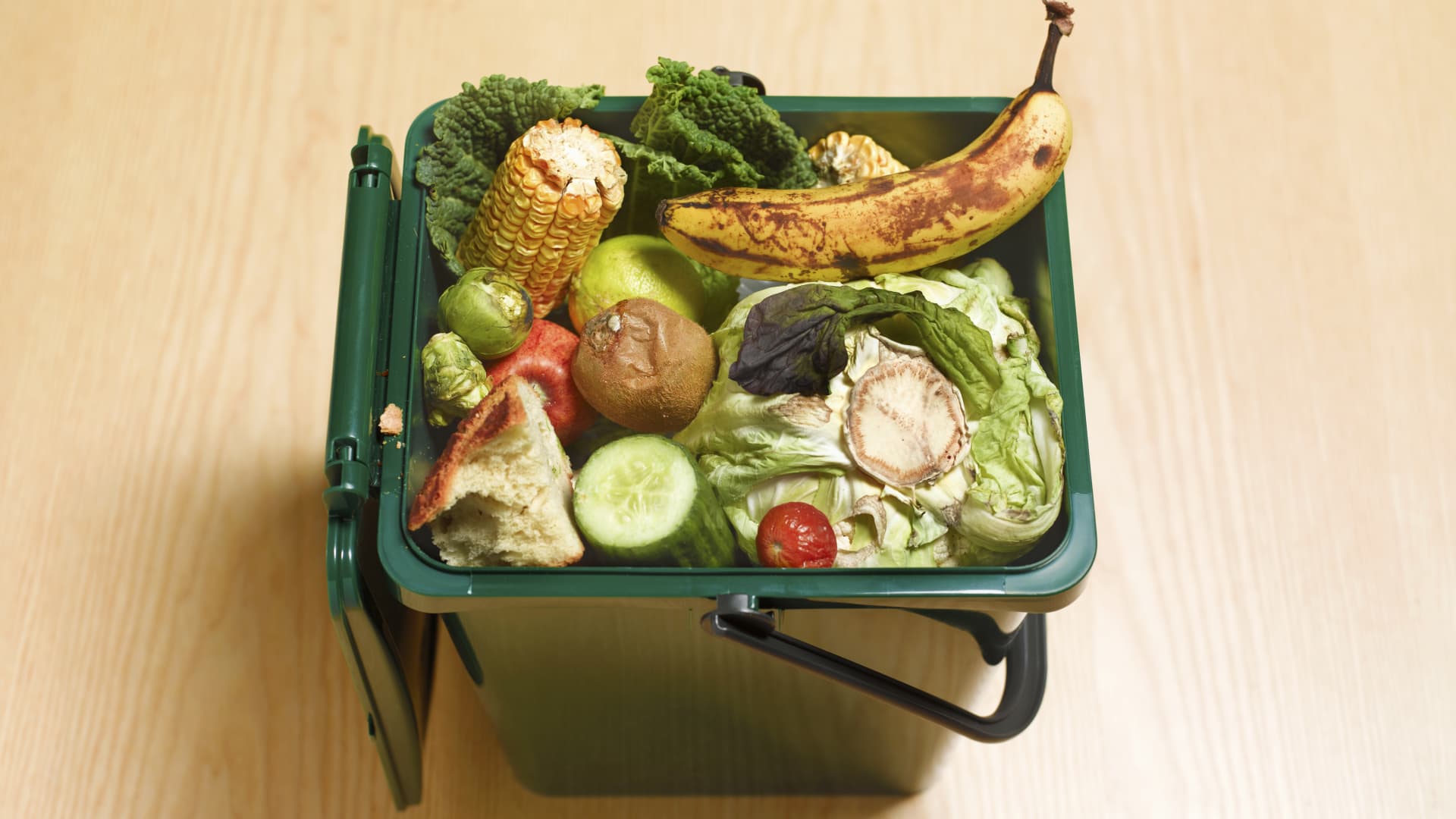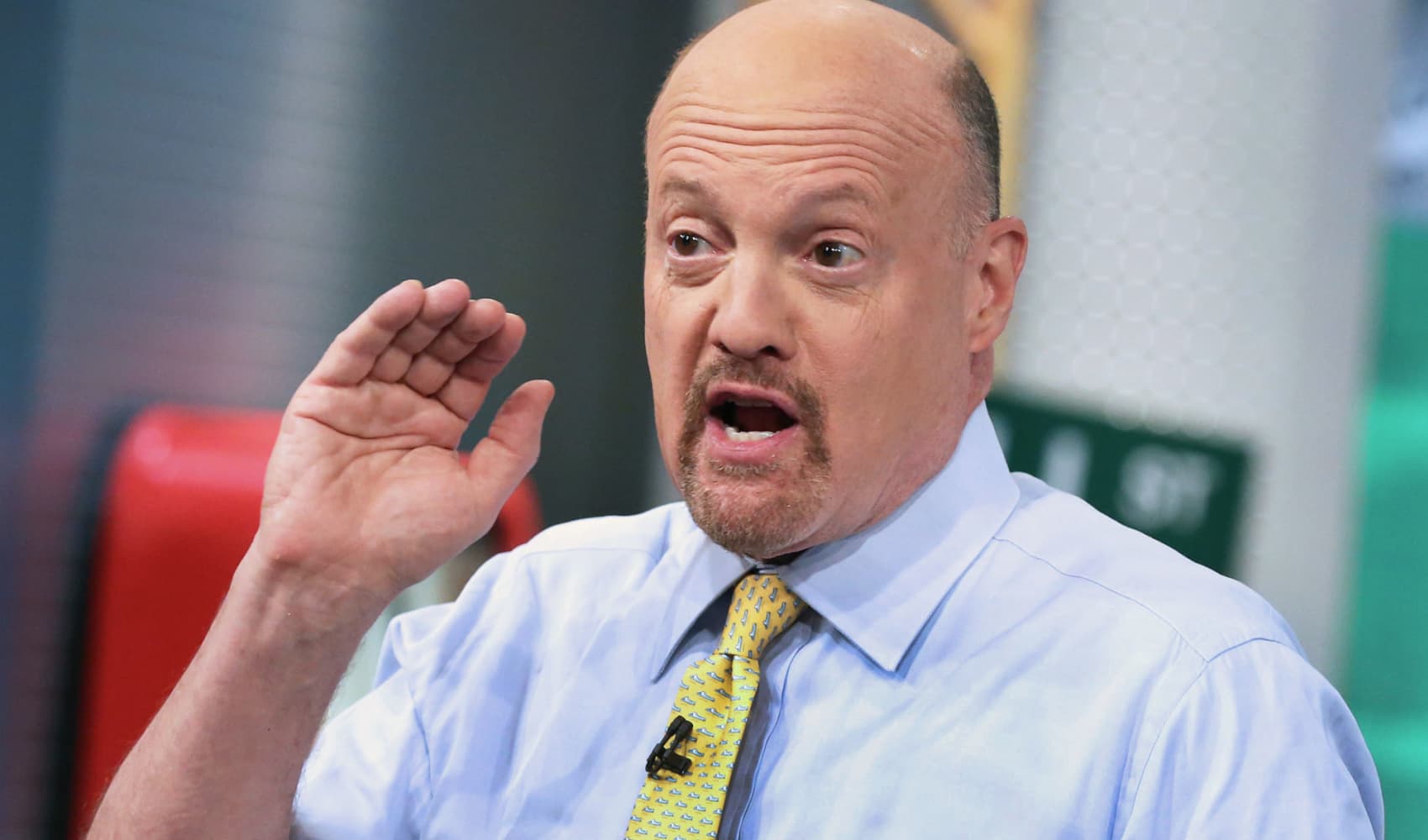
- Food waste remains one of the biggest global challenges.
- Amid global lockdowns and halted travel, the pandemic exposed the vulnerabilities of supply networks.
- "Before Covid-19, people took climate change less seriously because food came by easily. But now this issue starts to surface in people's minds," said William Chen, director of the Food Science and Technology Program at Nanyang Technological University in Singapore.

SINGAPORE — Covid-19 is a wake-up call that's highlighted the urgency to fight the world's food waste crisis, experts and industry players told CNBC.
Amid global lockdowns and halted travel, the pandemic exposed the vulnerabilities of supply networks, as disruptions created bottlenecks in farm labor, transport and logistics and sparked global food shortages and price hikes.
Get South Florida local news, weather forecasts and entertainment stories to your inbox. Sign up for NBC South Florida newsletters.
"The pandemic is a very good wake-up call," said William Chen, director of the Food Science and Technology Program at Nanyang Technological University in Singapore.
"Before Covid-19, people took climate change less seriously because food came by easily. But now this issue starts to surface in people's minds," he added. "I don't see it as a lost cause, but a good opportunity to do a house-cleaning of the current system."
Food waste remains one of the biggest global challenges.
Money Report
The Food and Agriculture Organization of the United Nations (FAO) estimates that one third of all food produced — or 1.3 billion tonnes — ends up lost or wasted every year. Food waste also accounts for 8% to 10% of global greenhouse gas emissions, another UN report showed.
Reducing food waste could yield $700 billion in savings, according to Boston Consulting Group. And businesses in Southeast Asia are jumping on the bandwagon and going into food waste prevention, as well as redistribution and recycling of excess food.
Growing appetite to tackle food waste
In 2020, Singapore generated 665,000 tonnes of food waste, making up about 11% of the total waste generated in Singapore.
Coming out of the pandemic, more hotels and airlines are now tackling food waste and putting sustainability "front and center" on their priority list, said Rayner Loi, co-founder and chief executive of Singapore-based AI food waste management start-up, Lumitics.
This was a stark change from a few years back when food waste was "barely on the radar" and it was "incredibly challenging" to have conversations with industry players, said Loi.
The growing receptiveness is thanks in part to increased education, new government regulations and sustainability being high on the corporate agenda, he said.
The firm developed an artificial intelligence-powered tracker installed in dustbins to measure and track all food waste. By learning in real time what and how much food waste was generated, chefs could take action to reduce the amount produced for certain dishes on the buffet line.
This reduces food waste by up to 40%, and food costs by up to 8%, Lumitics found.
From 2024 onwards, owners and occupiers of commercial and industrial premises in Singapore that generate large amounts of food will be required to segregate their food waste for treatment, according to a new legislation.
Lumitics partners large hotel chains like Accor, Hyatt, Marina Bay Sands, as well as carriers such as Singapore Airlines and Etihad Airways.
It plans to expand to 1,000 locations in the next five years across Asia-Pacific starting with Hong Kong, Malaysia, Indonesia and Australia.
"The entire industry is starting to wake up to this idea that food waste is one of the largest untapped cost saving opportunities for any kitchen," said Loi.
Turning food waste into 'surprise boxes'
Another player fighting food waste is Yindii, a Thai anti-food waste startup. It launched an app to connect eco-conscious Bangkok residents with bakeries, cafes, supermarkets and restaurants.
These businesses fill up their unsold inventory in "surprise boxes," which customers can snap up at discounted prices of 50% to 80% off at the end of the day, and get them delivered to their homes.
Yindii founder and French entrepreneur Louis-Alban Batard-Dupre described Bangkok's food waste situation as "catastrophic," where only 2% of food waste is recycled.
In Thailand, some 17 million tonnes of unused food is dumped each year, and about 64% of its 27.4 million tonnes of waste is made up of organic waste, which includes food and kitchen waste.
Industry players themselves have highly underestimated the problem.
"Most of the food businesses we've met think they don't waste much. When they start making quick calculations of what 6% to 14% of extra revenues mean, we usually get a call back," he said.
Mindsets of merchants are changing too, as more brands prepare for a sustainable post-Covid tourism future, he said.
Back then, they were "shy to say they generate food waste because it reveals their stores don't sell out every day or because it's a dirty word," said Batard-Dupre. "But telling the world you're fighting for the planet is so much more powerful than trying to hide such a systemic problem every business has."
To date, Yindii has seen over 20,000 surprise boxes bought up. Redistributing the food that would have been thrown out also helps many living under the poverty line, he said.
Yindii's partners include hotels such as Hilton Sukhumvit Bangkok, Grand Hyatt Erawan Bangkok, Sofitel Bangkok Sukhumvit and JW Marriott. Over the next few months, it is looking to expand to other cities in Thailand and South East Asia.
Technology as a way forward
Technology is starting to play a bigger role in tackling food waste.
Southeast Asia is particularly vulnerable to food waste because it has many small-scale farm holdings that rely on intensive livestock farming and lack the means to invest in more efficient agri-tech, said Chen from NTU, who is also a consultant to the Asian Development Bank.
The growing middle income class also consumes more.
One of the UN Sustainable Development Goals aims to halve food waste by 2030 at the retail and consumer levels and reduce food losses along production and supply chains, including post-harvest.
More private-public partnerships will be key, where "enthusiastic small start-ups" can scale up with the help of technology and funding from the government, or work with big multinational corporations to plug the gaps, said Chen.
Another lucrative venture is "upcycling," which refers to taking ingredients that would usually be thrown out and processing them into new high-quality, marketable products.
For instance, plant-based seafood firm Sophie's Kitchen is using soybean residue okara as a culture medium for microalgae cultivation in the fast-growing alternative protein market space.
Other examples include adding higher valued ingredients like salted eggs to normally discarded fish skin or using black soldier flies to transform food waste into fertilizer, said associate professor Audrey Chia of the National University of Singapore Business School.
Likewise, predictive technology could also help restaurants and retailers estimate demand or produce for food.
"Ironically, it is a vicious cycle. The slower we are to take action on climate change, the more we will see extreme weather and the greater the likelihood of zoonotic diseases — that could consequently increase food waste," said Chia.






